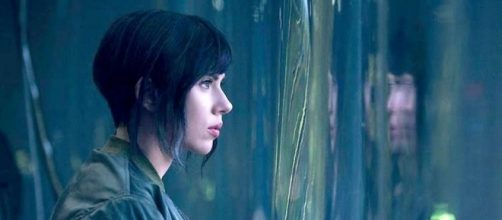Last year the Oscars faced a massive backlash for the lack of ethnic diversity among nominees. This led to the hashtag #OscarsSoWhite trending globally and the likes of Spike Lee, Michael Moore and Will Smith boycotting the award show. Cheryl Boone Isaacs, President of the Academy of Motion Picture Arts and Sciences then issued a statement saying: “I am both heartbroken and frustrated about the lack of inclusion. This is a difficult but important conversation, and it’s time for big changes. The Academy is taking dramatic steps to alter the makeup of our membership.” In 2017 the list of winners and nominees was no doubt more diverse, with such films as Lion, Hidden Figures, Fences and Best Picture Winner Moonlight (not La La Land).
But despite this, Hollywood clearly still has a long way to go, beyond the inclusion of black actors and filmmakers. After all, the likes of Morgan Freeman, Jamie Foxx, Denzel Washington and Forest Whitaker have all won Oscars over the years. Will Smith himself has even been nominated twice for his own Academy Award - losing out to the aforementioned.
East Asian actors
But where the Film Industry seems to lack representation, and has recently been called-out for whitewashing on numerous occasions, is with East Asian characters. In the last year a handful of films have been criticised for casting white actors to play these roles, including; Dr Strange, The Great Wall, Kubo and the Two Strings, Death Note and Ghost in the Shell.
Blake Ridder, a Chinese actor who will star alongside Dan Stevens in the upcoming film Apostle and is currently part of a crowdfunded project called The Real Target (starring co-creators David Cheung and Yolanda Lynes) says: “If you look at the top recent Hollywood movies, or even British movies, there are no East Asian lead roles at all. I think Asian-Americans are starting to get cast more, mainly because they are starting to see how big the market is in China. But at the same time, I think the British film industry can do better.” Jamey May, a British actress and founder of Bronco Pictures - a showreel production company - says “there’s no excuse for not having lots of ethnicities in a film now”.
Typecasting
However, one of the issues facing East Asian actors is the issue of typecasting. Ridder explains: “A lot of my fellow Asian actors are trained in martial arts or stunts, so they get cast for the stereotypical roles. But that’s not the direction I want to take, I want to be an actor for my acting, rather than my physical skills. I’ve started to see a pattern that I normally get auditioned for either a Chinese gangster character or a father figure in a Chinese family. But I want to build an acting career around various type of characters, from ‘the boy next door’ to villains to geeks, rather than just the stereotypes.” However, May argues that typecasting is an issue for every actor based on how they look, regardless of ethnicity.
“If you are an attractive girl with big boobs you will get typecast as ‘the girlfriend’ role - unless you can show that you can do something else. And so if a Chinese person can show they can do deep, dark, really gritty acting they are not just going to get typecast for martial arts roles.”
Commercial success
The other argument for casting the likes of Scarlett Johansson in films such as Ghost in the Shell is ‘money’. Big names attract big audiences. But there are very few East Asian stars in Hollywood - a vicious circle when you consider that actors only become ‘money makers’ after they have been cast in big roles. While franchises such as Star Wars and The Jungle Book have successfully balanced commercial success with unknown leads due to the power of their brands, films such as Get Out show that even without an established franchise casting an unknown, non-white actor can still result in commercial success.


